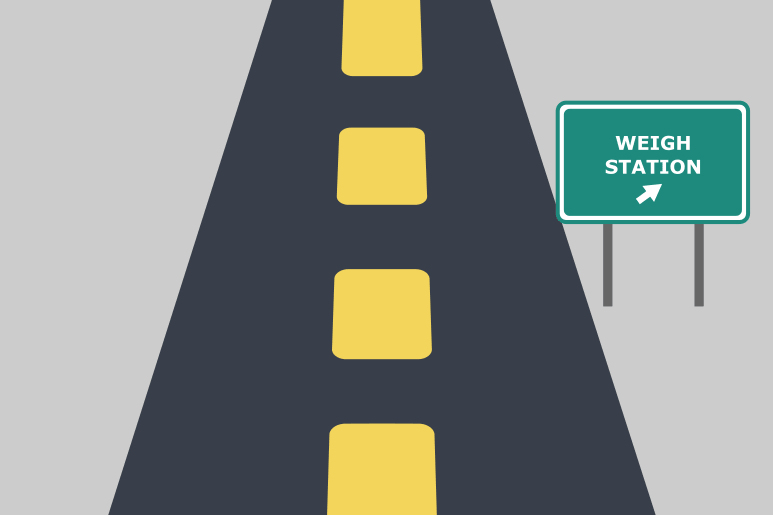You are driving down a road, and you come across a green sign. You know, the one with the arrow facing upwards and the words weigh station written in white?
If you know this sign, then maybe you are a very observant driver because major interstates are not a joke, but also, maybe you know it because you are a truck driver.
So what precisely is a weigh station? Scroll down to find out.
Table of Contents
- What Is a Truck Weigh Station and What Is Its Purpose?
- Do You Have to Stop at Weigh Stations with a Trailer?
- What Trucks Have to Stop at Weigh Stations?
- Do Trucks Have to Stop at Every Weigh Station?
- What Happens If You Don’t Stop at a Weigh Station?
- Final Words
What Is a Truck Weigh Station and What Is Its Purpose?
A truck weigh station is a chosen point off the highway, mostly for trucks and other commercial vehicles where the state highway patrol examines the weight of a vehicle. The reason for such weight inspection checkpoints is to make sure that the safety of the roads is not jeopardized by overweight vehicles.
By overweight, the US Department of Transportation defines a truck above 80.000 pounds, i.e. that is the maximum weight allowed for a truck to be roaming the interstate freely without being fined.
After all, roads and bridges can only stand so much weight and we are not talking about one track crossing the interstate per day. We are talking about thousands of trucks and commercial vehicles every single day. Imagine the pressure, right? So someone needs to regulate that.
In today’s context, weigh stations have extended their use. Apart from controlling and regulating heavy loads, they prevent accidents from happening; they make sure all drivers have the necessary paperwork, that their equipment is functional, and they also facilitate trafficking and illegal immigration searches.
A designated truck weigh station between the border of two states (despite having the same purpose) is called a port of entry.
Do You Have to Stop at Weigh Stations with a Trailer?
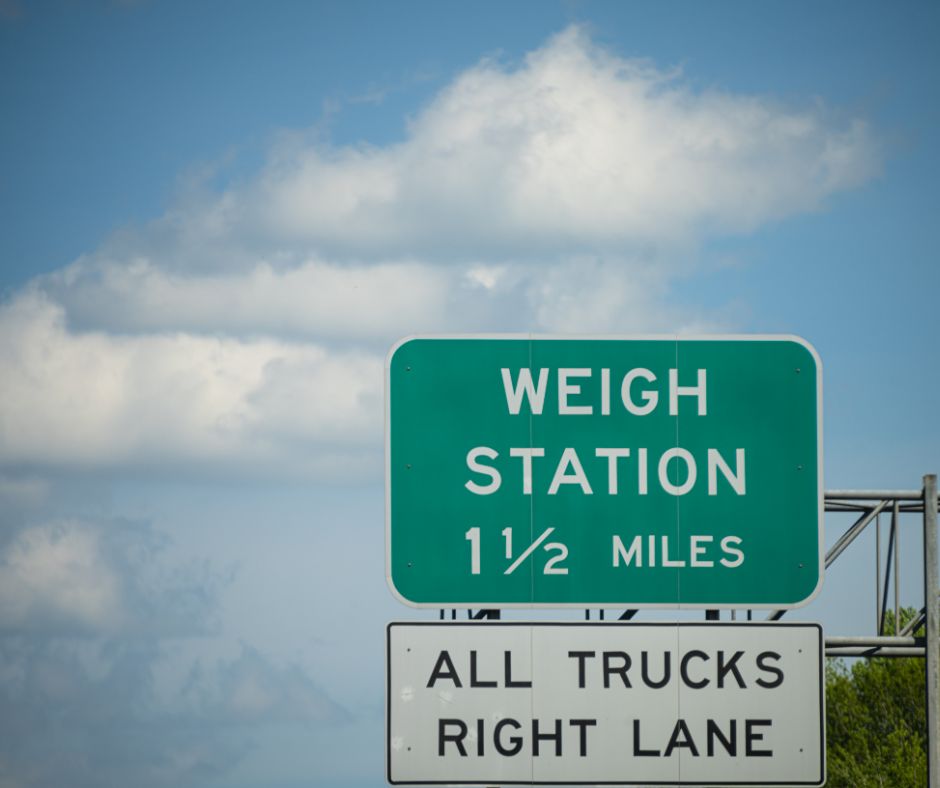
The laws may vary from state to state, however, as a general rule of thumb, weigh stations are for trucks and vehicles that have commercial use.
That means, commercial trucks, commercial semis, and rental vans that haul commercially will need to hit the scales, but not, say, a car or a van with a trailer for personal or recreational use.
For more specific regulations by state, it would be best to check the American Automobile Association (AAA) rules.
What Trucks Have to Stop at Weigh Stations?
Every driver of a commercial vehicle transporting goods or passengers usually has to stop and submit the vehicle to size, weight, and equipment inspection at any checkpoint.
Such vehicles are registered under the commercial vehicles code and they have to stop at the designated checkpoints.
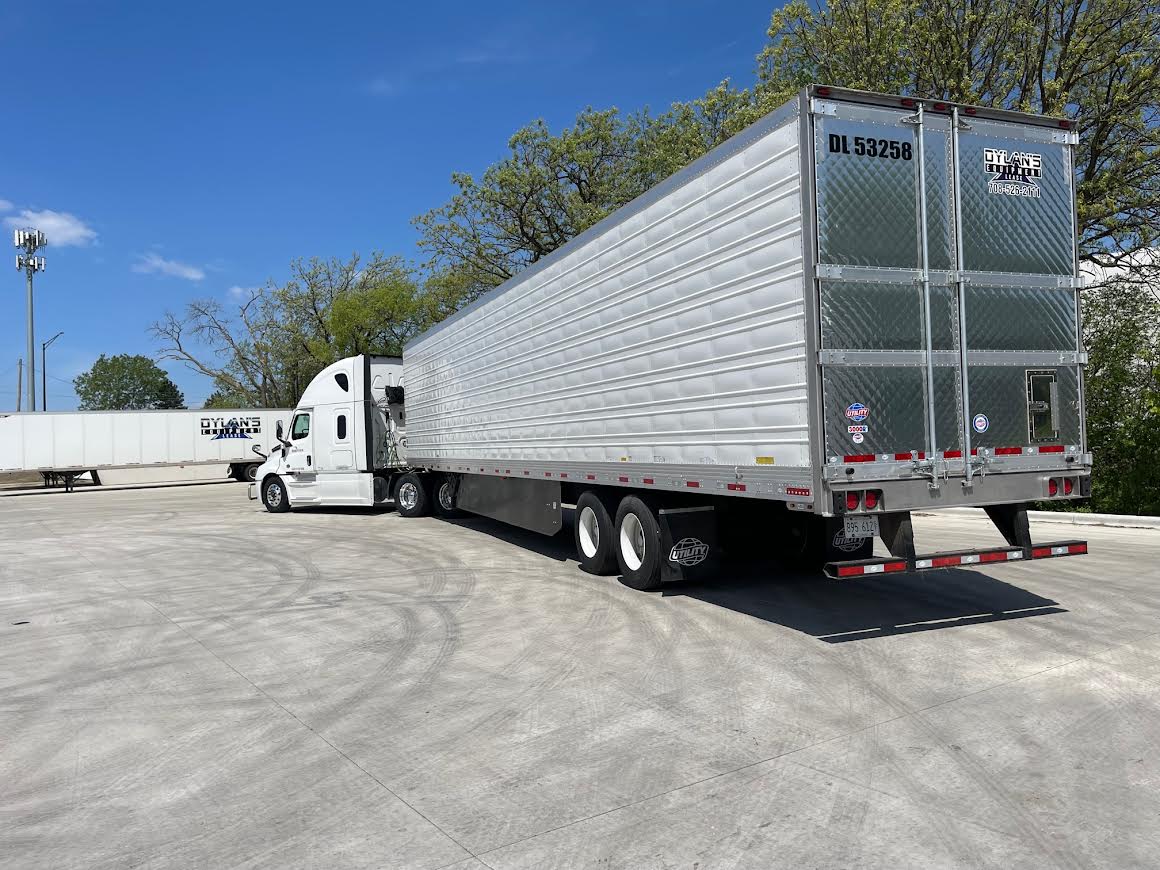
Every state runs its own rules and loads limits, but generally, trucks exceeding 10.000 pounds, motor trucks for property transportation, pickup trucks exceeding 11.500 pounds, agricultural vehicles, vehicles with a trailer beyond gross vehicle weight rating (GVWR) of 10.000 pounds, cargo vans depending on the load they carry, pickups with cab or crew cab with a box-type bed have to stop at the weighing control stations, unlike, say, a pickup with a camper shell.
Check some of the weight guidelines by state below:
| State | Weight Guidelines |
|---|---|
| Arkansas | All vehicles above 10,000 pounds must stop to hit the scales. |
| Alabama | Trucks exceeding 10,000 pounds are required to stop. |
| Alaska | Trucks exceeding 10,000 pounds are required for scaling. |
| Arizona | Agricultural vehicles, trailers, and semi trailers above 10,000 pounds, commercial trailers or semi trailers; motor vehicles or vehicles used for passengers’ transport (but not school buses), trucks transporting dangerous chemicals or materials, and vehicles shipping commodities will be inspected. |
| Colorado | Every vehicle exceeding 26,000 pounds will need clearance either from the Colorado Department of Revenue, the Colorado state patrol officer, or the entry weigh station port. |
| California | All trucks and commercial vehicles are obliged to stop for inspection of size, weight, equipment, and smoke emissions at the designated checkpoints. |
| Connecticut | No exceptions here. Literally, every vehicle has to make the stop regardless of the size or weight. |
| Delaware | The Public Safety Department says the maximum single axle load allowed is 22.400 pounds. |
| Florida | Production, manufacture, storage, sale, agricultural, horticultural, livestock product or transportation vehicles, private passenger vehicles exceeding 10 passengers or 10.000 pounds, vehicles transporting potentially dangerous materials, travel and camping trailers have to stop at weigh stations in Florida. |
| Georgia | All vehicles over 10,000 have to pull over for inspection. |
| Hawaii | Only trucks over 10,000 have to pull over for inspection. |
| Illinois | Police officers pull over vehicles that are suspected of potentially exceeding the weight limits. |
| Idaho | 10 fixed points of entry and 10 portable units are used for weighing all the trucks and vehicles hauling commercially that pass by. |
| Indiana | Trucks that surpass 10,000 pounds must stop for scaling. |
| Iowa | All vehicles over 10,000 pounds are required to stop. There is an option of removing the weight and putting it into another vehicle to split the load. |
| Kansas | Police officers have the right to stop every vehicle that looks like or is suspected to be surpassing the load limits. |
| Kentucky | Agriculture vehicles and commercial vehicles exceeding 10,000 pounds have to stop. |
| Louisiana | Agricultural vehicles, passenger or specialty vehicles with or without a trailer as well as commercial vehicles carrying more than 10,000 pounds will be admitted to the scales. |
| Maryland | There are 7 weighing stations for trucks and one station at 95 Interstate specifically for agricultural and commercial vehicles over 10,000 pounds and commercial vehicles carrying more than 16 passengers or any dangerous materials. |
| Massachusetts | Agricultural vehicles, passenger or specialty vehicles with or without a trailer, as well as commercial vehicles carrying more than 10,000 pounds will be admitted to the scales. |
| Maine | Police officers decide which vehicles will be examined. |
| Michigan | Trucks, dual rear wheels vehicles carrying agricultural products, and tractors or semi-trailers pulling construction equipment that’s over 10,000 pounds will be required to make the stop. |
| Minnesota | Every vehicle over 10,000 pounds must stop. |
| Mississippi | Any vehicle can be weighed for weight accuracy if a law enforcement officer recognizes the need for that. |
| Montana | All vehicles exceeding 8,000 pounds will need to pull over at the designated checkpoints. |
| Missouri | All commercial trucks with a GVWR above 18,000 pounds must stop. |
| Nebraska | Except recreational trailers and RVs used for private purposes, all trucks over a ton will need to stop. |
| Nevada | Agricultural vehicles and commercial vehicles that tow more than 10,000 pounds need to stop. |
| New York | Portable weigh stations are used for weighing if a law enforcement officer recognizes the need for a vehicle to be weighed. |
| New Hampshire | All vehicles can be subject to inspection if a peace officer recognizes the need for that. |
| New Jersey | All vehicles above 10,000 pounds must stop for inspection. |
| New Mexico | Trucks above 26,000 pounds or more must stop. |
| North Carolina | Officers can require you to make the stop if you are not complacent with the limits and regulations of the state. |
| North Dakota | All vehicles hauling for commercial purposes with a GVWR over 10,000 pounds must stop. |
| Ohio | All commercial vehicles exceeding 10,000 pounds have to pull over when they see a sign. |
| Oregon | All vehicles above 26,000 pounds must stop. |
| Oklahoma | Any sheriff or peace officer can direct your vehicle to inspection if they see the weight and size limits are not being met. |
| Pennsylvania | Trucks, agricultural vehicles, commercial vehicles, or vehicles towing large trailers, and large RVs, will have to hit the scale regardless of their size. |
| Rhode Island | Trucks with a GVWR over 10,000 pounds and agricultural vehicles are required to make the stop. |
| South Dakota | Agricultural vehicles, trucks, and drive-away operation surpassing 8,000 pounds will be inspected. |
| South Carolina | If an officer determines the weight is not within the weight limit, the vehicle can be stopped and unloaded until it reaches the allowed number. |
| Tennessee | Weigh stations are placed across the state for checking federal and state restrictions related to size, weight, safety and have to stop when they see the sign or when directed by a peace officer. |
| Utah | Law enforcement officers with reason to believe a vehicle is surpassing the administered height, weight, or length has the right to submit the vehicle to inspection. |
| Vermont | Law enforcement officers make the decisions randomly based on vehicles that look suspicious. |
| Virginia | Trucks above 7,500 pounds will have to stop. |
| West Virginia | A police officer can stop vehicles for weighing at either the portable or stationary checkpoints. |
| Washington | Agricultural vehicles and trucks exceeding 10,000 pounds must pull over for inspection. |
| Wyoming | Trucks must stop when instructed by a police officer, and often, they can be chosen for weighing randomly, or if they look suspicious. All oversize/overweight trucks of 150,000 pounds will need a permit or they can buy one before entering the country. |
| Wisconsin | Trucks surpassing 10,000 pounds will have to stop at weigh stations. |
*10.000 pounds = 5 tons.
Do Trucks Have to Stop at Every Weigh Station?
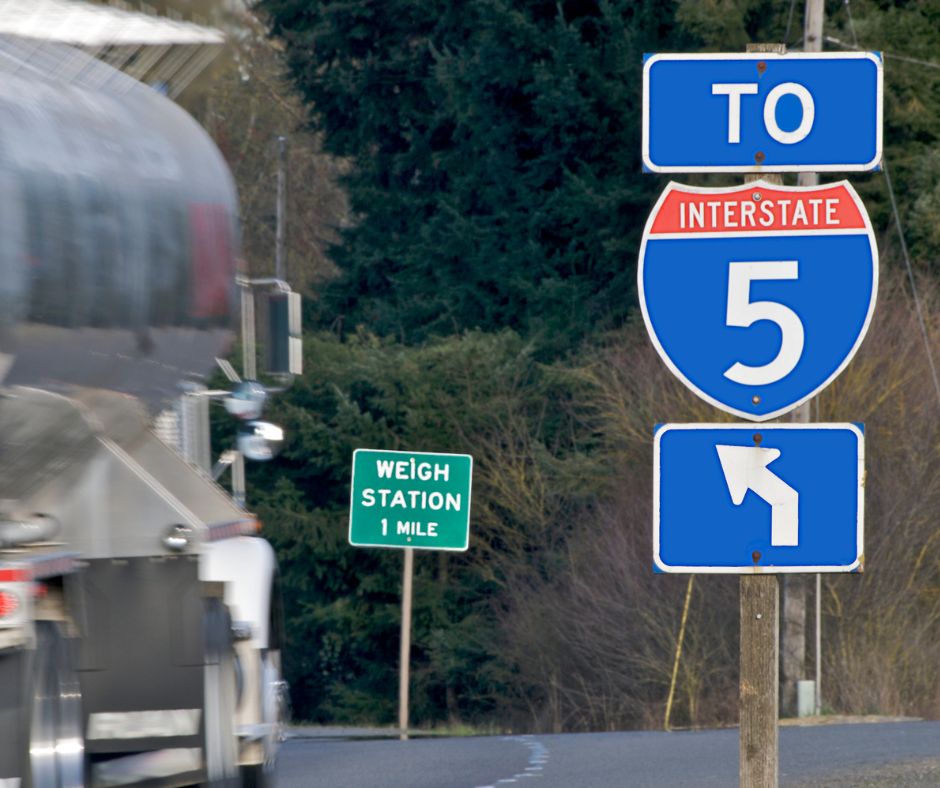
Yes. We can beat around the bush, but the answer will still be the same.
The biggest reason why a truck has to taste that bitter taste of the scales is safety.
A lot of highways, interstates, bridges, and overpasses will have a weight limit to them because many heavy vehicles pass on a daily basis and they can cause structural damage to the road that is not going to be beyond repair but can eventually cause accidents and the loss of lives.
For starters, heavy trucks are arduous to be maneuvered downhill, so they can pose a danger for the driver, but also for the other people passing by.
What Happens If You Don’t Stop at a Weigh Station?
At a weigh station, trucks are primarily inspected for weight, but they can also be inspected for any low or flat tires, broken springs, tire treads, brake malfunctions, fuel, anti-freeze, oil, hose, or tube leaks, cracks in the wheels or rims, or an unlocked kingpin.
These are all considered as truck malfunctions or violations of the regulations that can cause your truck to be declared out-of-service by the Federal Motor Carrier Safety Administration (FMCSA).
If so, your truck will need to undergo repairs which will, later on, be checked by the FMCSA.
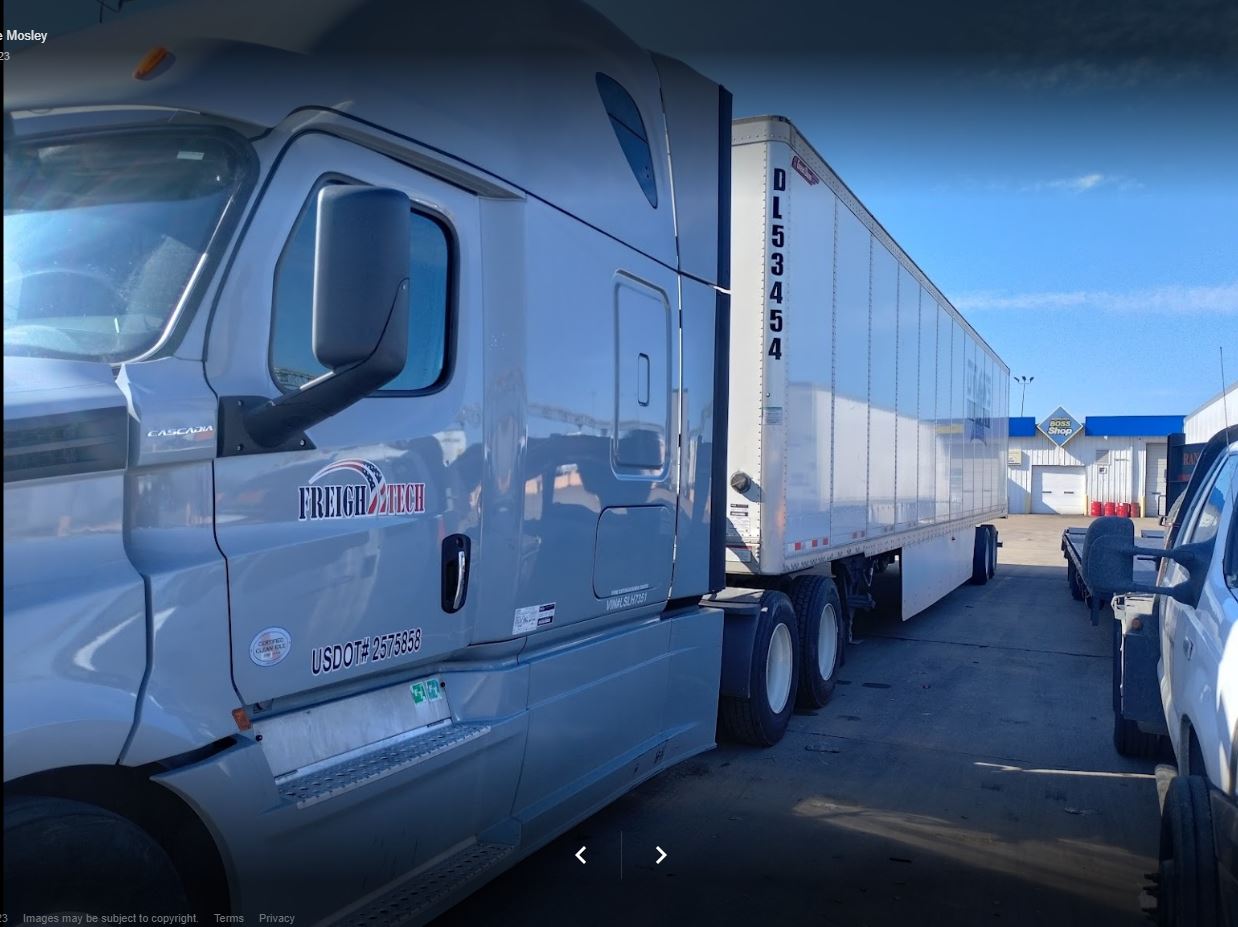
Skipping a weigh station will earn you a fine starting from $300, but that fine can easily go up should officers find a malfunction during an inspection of the vehicle.
Skipping a designated checkpoint with a clear sign OPEN may also cost your license to get suspended by the Department of Transportation.
Note: countries like Washington, Arizona, Indiana, California, Ohio, and Florida have the highest chasing rates, so you might want to skip that skipping. However, given the technology of today, the Department of Transportation has come up with a feisty way to catch skippers and it is not advisable.
You may skip a weigh station once, but you cannot do it every time. And you are not just putting your job on the line; you are also giving your coworkers a hard time if you happen to lose your company’s pre-pass ability by not stopping at weigh stations.
Further Reading: The Best Truck Stops in the United States
Final Words
The thing about weigh stations is that you have to stop at each and every one of them, and the rules, limits, and regulations vary according to state, but if you are in compliance with the rules and nice to officers, you will have no problems whatsoever.
All it takes is knowing which states you are going to be crossing, so you can check each of the state’s separate regulations. It may sound tedious, but it’s not like we are talking about an infinite number of states, right? It’s a small price to pay for safety, after all.


